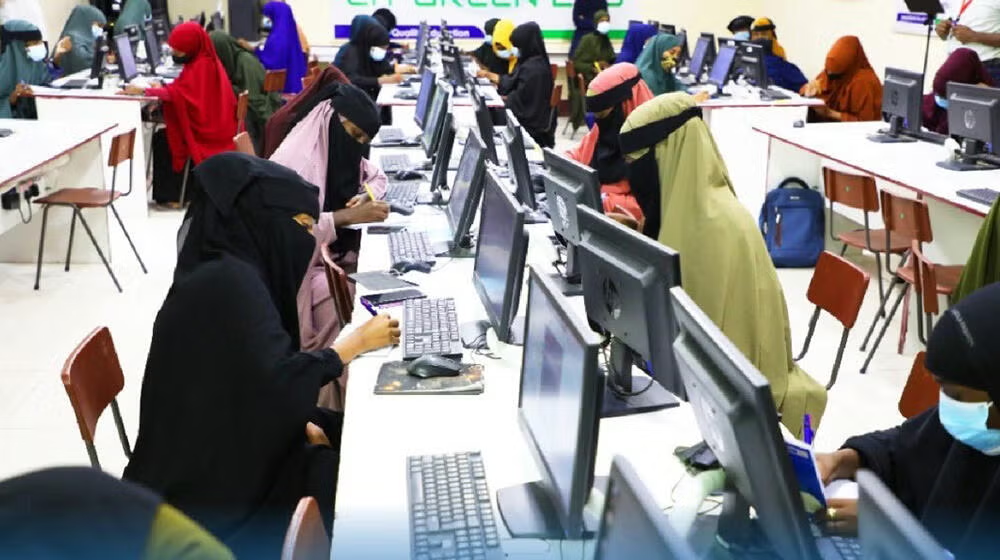In the back corners of internet cafés, quiet university labs, and increasingly within their own homes, young people across Somalia are building something extraordinary: a grassroots digital movement.
Amid power cuts, limited infrastructure, and minimal formal support, Somali youth are pushing boundaries to learn, create, and launch their own technology solutions. They are learning to code through YouTube. Building mobile apps that serve real local needs. Contributing to open-source projects. And while the global narrative often focuses on Somalia’s challenges, this digital undercurrent reveals a different story — one of potential, resilience, and talent waiting to be recognized.
Zifala has worked closely with young Somali developers, designers, and aspiring tech entrepreneurs — and we’ve seen firsthand just how much they can achieve when given the right support. But the wider ecosystem still falls short in providing the structures, resources, and platforms necessary for this talent to thrive at scale.
The Rise of Self-Taught Developers in Somalia
One of the most remarkable trends in Somalia’s tech space is the rise of self-taught youth. With little access to formal computer science programs, many young people are turning to free or low-cost online platforms like FreeCodeCamp, YouTube, and W3Schools to learn how to build websites, mobile apps, and APIs. In cities like Mogadishu, Hargeisa, and Garowe, small communities of learners are emerging, often gathering informally to share knowledge and troubleshoot problems together.
What’s notable is the speed and creativity with which these youth learn. Many are not just replicating tutorials — they’re adapting them to local contexts. We’ve seen projects like SMS-based job alerts in areas with limited smartphone access, small-scale e-commerce platforms targeting niche Somali products, and health apps designed to support maternal care in IDP camps. These aren’t just school exercises — they’re solutions born from lived experience.
Yet, for all this ingenuity, young Somali technologists are often isolated. There are few structured mentorship opportunities, tech hubs remain limited in number and capacity, and access to devices and stable internet is still a daily struggle for many.

We don’t lack ideas or drive, we lack opportunities to be seen and supported.” — Ayaan Abdi, Junior Developer, Mogadishu
Structural Gaps in the Somali Tech Ecosystem
The promise of youth in tech is undeniable — but the system meant to support them is underdeveloped. While some universities now offer IT-related degrees, the content is often outdated, and access is skewed toward those in urban centers. Even when students graduate, there’s a lack of incubators, structured internships, and entry-level jobs that offer meaningful exposure to real-world development work.
Many young people find themselves stuck in a cycle of learning without application. Others become freelancers, working on small one-off website projects or joining remote work platforms — a path that often isolates them from peer learning or long-term skill development. The lack of Somali-language tech resources further limits accessibility, especially in regions where English fluency remains low.
More critically, there’s a growing divide between tech training and employability. Many youth know how to build software, but lack the soft skills, client communication exposure, or portfolio development guidance needed to enter the professional world with confidence.
Zifala’s Role: From Talent Users to Talent Builders
At Zifala, we believe the solution is not to extract the best of Somalia’s youth and export them — it’s to create an ecosystem where they can thrive at home. That’s why we don’t only hire young developers — we build with them, train them, and help them grow into industry-ready professionals.
Our team includes self-taught developers who’ve now led complex builds for health platforms, job portals, and cloud-integrated systems. We offer internships, mentorship from senior engineers, exposure to real client work, and post-project feedback that accelerates both technical and professional development. We don’t see youth as “junior capacity” — we see them as future tech leads, and we treat them accordingly.
But the impact we can make alone is limited. The Somali tech ecosystem needs a joint effort — from the private sector, government, universities, and even donors — to invest in structured training programs, support innovation spaces, and showcase Somali youth on national and global platforms.
A Call to Believe and Build
Somalia doesn’t need imported digital solutions; it needs its youth to be empowered to build their own. And they’re already doing it — despite the odds. What’s missing isn’t motivation or capability. It’s access. It’s recognition. It’s structure.
The Somali tech sector is in its formative years, but its foundation must be laid with belief in the people who will carry it forward. That means investing in devices, mentorship, community spaces, and most importantly — trust.
At Zifala, we are doubling down on our belief in young Somali talent. Not as a CSR checkbox. Not as a one-off opportunity. But as a core pillar of how we build and deliver impactful solutions. We invite other businesses, organizations, and institutions to do the same — because a generation is rising, and all it needs is a system that rises with it.



